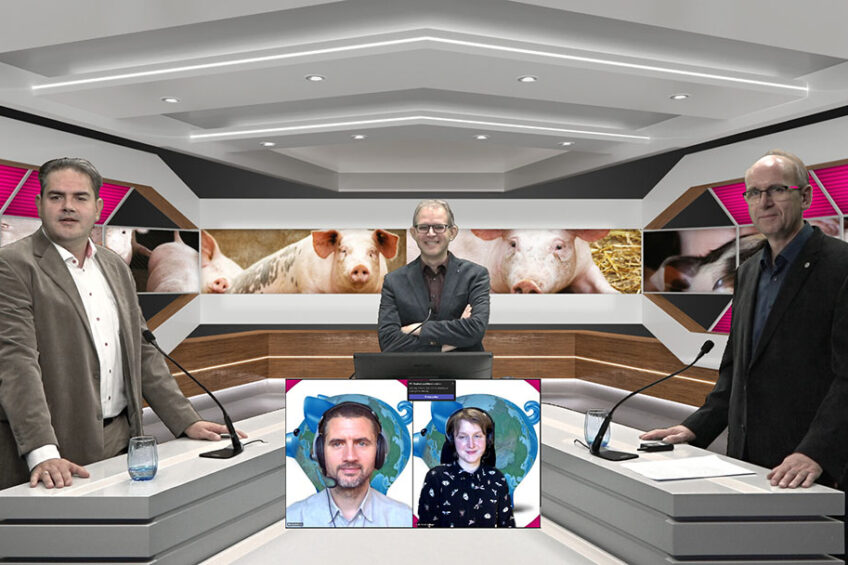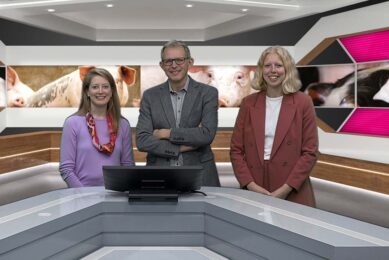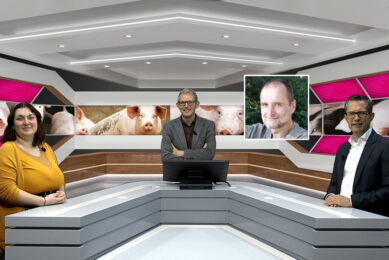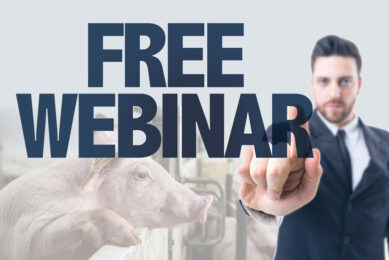On-demand: Webinar on tail biting and gut health

Tail biting is a multifactorial problem. The view that gut health is among these problems however, has been gaining ground only recently. There is good reason to believe that what is going on inside the pig’s gut is expressed in its behaviour. A recent webinar delved deeper in this link. It is now available for viewing on demand.
Click here to view the webinar on demand
The webinar, held on October 25, took place in the series “The Future is Pork”, organised by Pig Progress in cooperation with Boehringer Ingelheim Animal Health. The webinar was held twice. The first one at 8am CET, aimed at an audience in the Eastern hemisphere. The second one at 3pm CET, aimed at an audience in the Western hemisphere.
Dr Llonch: Welfare and tail biting are related
The webinar kicked off with a presentation by Dr Pol Llonch, researcher in animal behaviour and welfare at the Universitat Autònoma de Barcelona in Spain. He laid out the theory behind the topic of animal health and welfare and how they are related to one another. He stated that also health plays an important role as a domain within animal welfare.
Dr Llonch asked attention for the “gut-brain-axis”. This would affect the different domains of animal welfare, notably the health domain.
Dr Kobek-Kjeldager: Pig diets can lead to stress
With exactly that basis, Dr Cecilie Kobek-Kjeldager continued. She is attached to Aarhus University in Denmark. She put down a hypothesis that commercial diets are in a way unnatural, as these are not how pigs were evolved to eat. That is why it can be related to stress, in turn leading to tail biting.
She presented with a list of dietary recommendations that could help to prevent tail biting, including the increase of fibre content in the feed, the minimisation of fine particles in the feed and adequate protein content in the feed.
Dr Lappe: Capturing tail biting on camera
Really practical things got when Dr Franz Lappe explained about his attempts to catch tail biting behaviour on-farm. He showed footage in which pigs changed their behaviour once a pig producer or a veterinarian entered the pig house. He did not observe the biting behaviour at those moments. Capturing a herd with a camera does not involve humans in the barn and paints a different picture. He shared many short videos in with tail biting examples.
Dr Lappe said that tail biting could result from a lack of resources or access – but could also be coming in an obsessive form, caused by sick animals. He also touched on the role of “earl childhood” imprinting with tail biting and explored the role of ileitis as a contributing or aggravating component of its causes.
In the roundtable discussion, Rutger Jansen, DVM, swine veterinarian at Boehringer Ingelheim, pointed out that the latter gut health component of ileitis can be overcome by vaccination, thus helping to increase animal welfare levels.
Podcast about tail biting in pigs
In an upcoming podcast in the “Meet the Expert” podcast series, both Dr Kobek-Kjeldager and Dr Lappe will tell share their thoughts and experiences towards tail biting.
An earlier episode in the series “The Future is Pork” was aimed at sustainably increasing feed efficiency. It was broadcasted in March 2022. That episode is also available for viewing on demand.
 Beheer
Beheer








 WP Admin
WP Admin  Bewerk bericht
Bewerk bericht